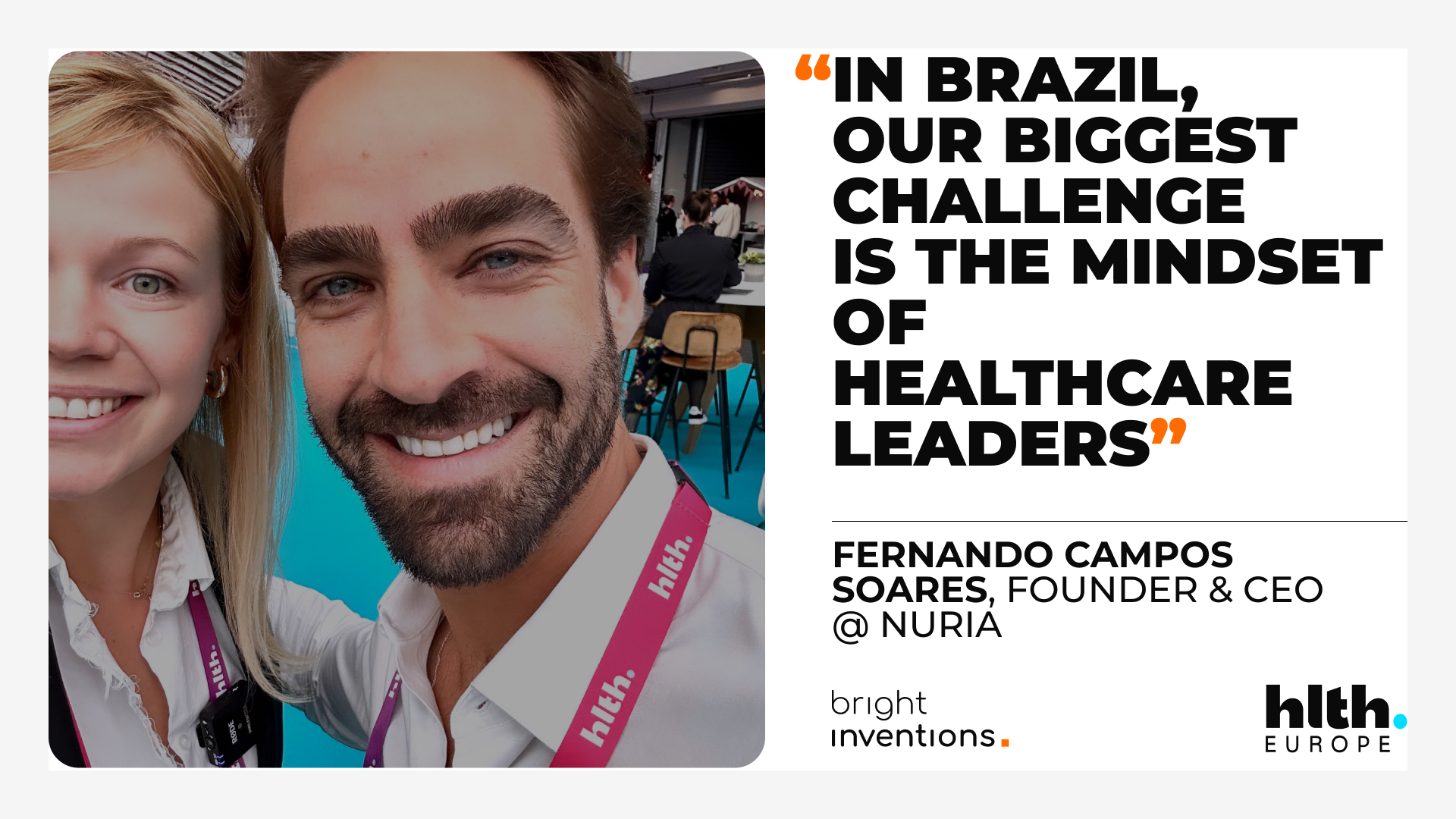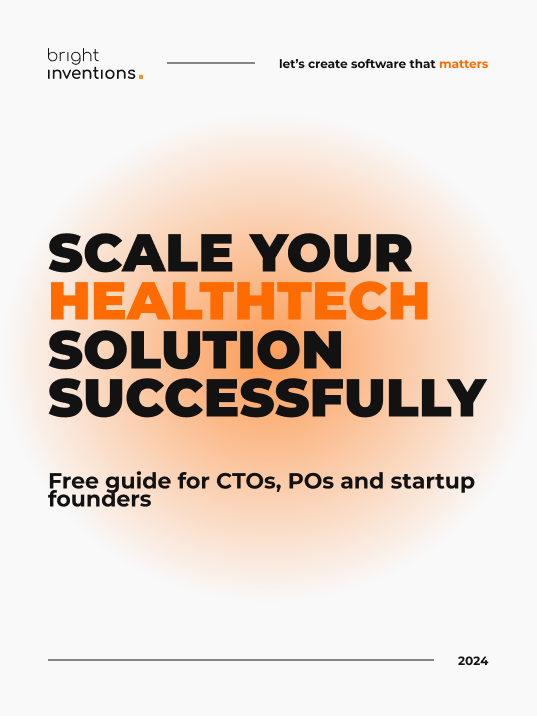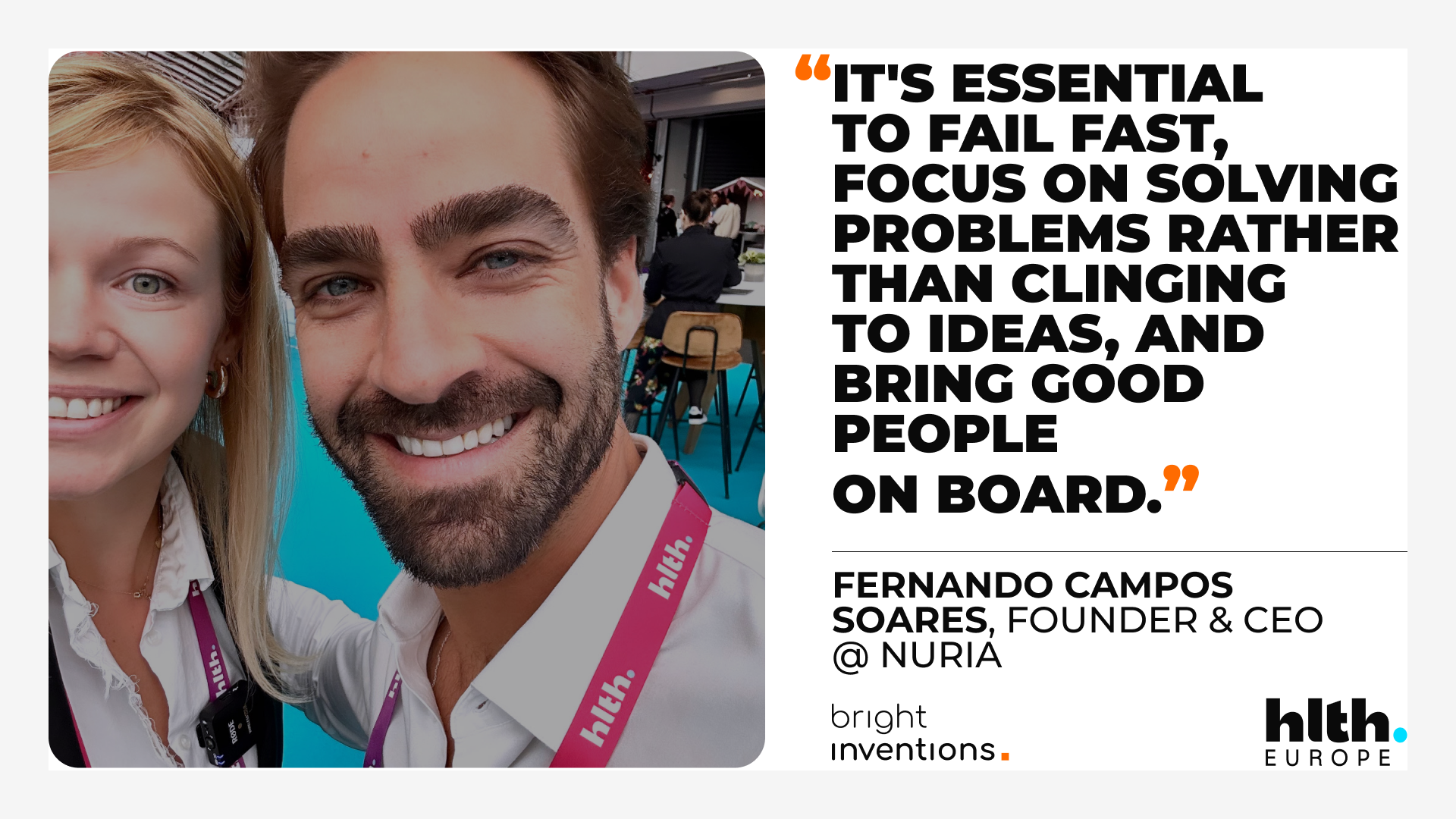Nuria: Advancing Healthcare Interoperability and Patient Engagement
In this interview, we explore the journey of Nuria a health tech company based in Brazil, focused on transforming patient engagement and healthcare data integration. The founder - Fernando Soares Campos shares insights on how their modular solutions are enhancing digital experiences for patients, streamlining data exchange across various healthcare sectors, and addressing the challenges of interoperability. Additionally, the discussion covers the barriers to digital transformation in healthcare, strategies for educating stakeholders, and future trends in the health tech industry. The interview was done at the HLTH Europe Conference in Amsterdam.
Please describe yourself and your solution.
I'm Fernando Soares the founder and CEO of Nuria. Nuria is a health tech company based in Brazil. We have two main focuses. The first one is patient engagement. We offer a complete B2B solution for hospitals, clinics, and labs so they can deliver a better digital journey for their patients, engaging them and bringing them closer digitally to their care.
Our solution is modular, with five modules that hospitals, clinics, and labs can buy from us and offer to their patients to better their digital journey. The second focus is an integration and interoperability platform. This involves data exchange between hospitals, clinics, labs, and other healthcare solutions, health techs, payers, the pharma industry, and distributors. Essentially, any player in healthcare that needs to automate a service or product, we connect them.
How exactly is your solution helping people?
For the patient engagement solution, we deliver a better experience for patients. They don't have to call to schedule an appointment; we have online scheduling integrated with hospitals, clinics, and labs. Patients can confirm appointments through their phone, WhatsApp, or email. We have a check-in solution similar to airlines, offering a better digital experience. This means less time waiting to see the doctor, 24/7 online scheduling and confirmation, better check-in experiences, and modules that remind patients about their care, like scheduling regular checkups. Last year, we impacted more than 12 million patients across Brazil with over 1,000 connected hospitals, clinics, and labs.
For the integration platform, we automate data exchange between more than 12 partners. The end users are usually doctors or patients. For example, the biggest online prescription health tech in Brazil connects through our system to EMRs in over 50 hospitals. When a doctor makes an online prescription, our platform integrates that prescription into the EMR, enhancing the data available to doctors. Another example is a digital solution for doctors in surgery rooms, recording how much medication is administered to each patient. We integrate that data into the EMR, providing doctors with comprehensive patient information.
As your company is heavily invested in interoperability, what barriers have you encountered during the journey?
We've encountered many barriers. When discussing data, interoperability, data quality, unstructured data, and structured data, challenges abound. In Brazil, our biggest challenge is the mindset of healthcare leaders. Patients often need to opt in to share their data for better outcomes, and regulatory bodies and healthcare providers can be resistant to data exchange. Payers and providers often operate independently, leaving patients caught in the middle. Changing this mindset requires educating stakeholders about the benefits of data sharing.

How did you manage to change the mindset of people in Brazil?
We're still in the education phase. When talking to managing directors of hospital groups, they often acknowledge the challenges of data exchange but don't prioritize investing in it. Changing this mindset involves educating rather than selling, with a lot of content and discussions. Healthcare changes are slow and require continuous effort.
Is Brazil the only market you're in?
Yes, currently we're only in Brazil. Brazil is a large market with about 50,000 healthcare units. We're connected to 1,000, so there's a lot of room for growth. Attending HLTH Europe allows us to benchmark and explore opportunities in Europe and Latin America.
explore more insights for HealthTech startup owners

How old is your solution?
We started back in 2012 with our first product, B2B online scheduling integrated with EMRs. By 2018, we developed what we called the patient's digital journey. In 2019, we launched the integration and interoperability platform. Last year, we rebranded the company, launched more modules, and our patient digital journey evolved into a patient engagement solution. Our integration platform has become a more robust interoperability and data exchange solution.
Have you modernized your solution? Have you encountered any barriers or challenges?
Yes, we constantly modernize our solution. From a product perspective, it's never 100% complete. We continuously evolve and invest in the product. Data exchange requires high-tech development. The more we integrate EMRs and partners, the more robust our solution becomes, handling over 130 million data points last year.
What inspired you to enter this field of e-health and medtech?
I've been an entrepreneur my whole life. In 2009, I had to reschedule an appointment with my dad's friend, a doctor. I struggled to find his contact information and thought it would be easier to use an app to cancel the appointment. At that time, there was nothing like that in Brazil. Inspired by the need for better patient digital experiences, I left my job and started Nuria to improve online scheduling and rescheduling.
Where do you get inspiration now? Any favorite podcasts or news sites?
I listen to Morgan Housel's podcast, which isn't healthcare-specific but offers insights into psychology, money psychology, and challenges. My dad is also a significant source of inspiration. He's been a CEO of large companies and has a lot of wisdom to share. I also belong to entrepreneurial groups, including health tech founder groups, where we share experiences and advice.
Do you have any advice for young entrepreneurs or startup owners?
Founding a company isn't for everyone. You need resilience, a strong purpose, and the willpower to persist through challenges. It's essential to fail fast, focus on solving problems rather than clinging to ideas, and bring good people on board. You can't do it alone.

What trends do you see in health tech and medtech, apart from AI?
Besides AI, I believe healthcare needs to shift its priorities to focus more on patients. While it's important to improve doctors' administrative work, we must prioritize the patient's overall experience and outcomes. The trend should be about integrating solutions that enhance the entire patient journey, not just isolated digital parts. We need to work together as an ecosystem to deliver better healthcare.
Thank you. That was insightful.
Thank you.
